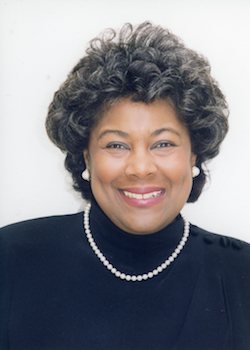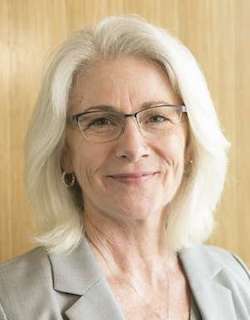If Austin had a Top 10 Most Influential Women in Health Care Award, Dr. Mary Lou Adams and Trish Young Brown would certainly rank high on the list. Guided by a strong and abiding faith, both women were on a mission — and in a hurry. The mission? To see to it that the underserved got health care.
I met Professor Adams as a nursing student in the ’70s at the University of Texas at Austin School of Nursing. Being in the presence of Adams and the other wonderful faculty inspired us to be the best nurses that we could possibly be, something that stuck with us throughout our careers.
She combined rigorous academics with unwavering compassion for students and patients. Troubled by seeing low-income African-American women die needlessly of breast cancer for lack of screening, she set her sights on changing that. She and Professor Sue Grobe developed a culturally sensitive screening model and obtained funding from the state, the feds and multiple foundations to open the school of nursing’s Breast Cancer Screening Project in 1990, which served primarily women from East Austin.
In 1991, the pilot project became the Women’s Wellness Clinic. From 1990 to 2007, more than 14,000 women were screened for breast cancer. What to do for the women who tested positive? The intrepid pair signed eligible women up for Medicare or Medicaid; recruited surgeons with the help of the late Dr. Robert Askew Sr.; and enticed St. David’s and Seton to perform 10 free surgeries per year. In 2007, the clinic was renamed the Family Wellness Clinic when the nursing school expanded clinic services to family practice.
Over the years, Adams and Grobe refined the model and helped the state acquire a huge grant from the then-named Centers for Disease Control to adopt the model statewide, saving thousands of lives. Their blueprint for comprehensive cancer care, prevention and control has been disseminated to 18 communities across Texas and Kansas.
Through Adams long volunteer service on so many community boards of directors as well as national and state panels including the National Cancer Institute scientific review panels, her considerable influence on clinical practice and health policy will endure.
To funders, policymakers and community stakeholders, Adams’ no-nonsense-but-fun attitude, conspicuous goodwill and focused goals were as irresistible as the twinkle in her eye and her hearty laugh.
Succumbing to pneumonia while in the end stage of rheumatoid arthritis, Adams died this month at the age of 74. Among the 20 or so awards she received were the President’s Volunteer Service Award and induction into the prestigious American Academy of Nursing. She leaves quite a legacy, and she made us all — her patients, students and co-workers — better.
Another most influential woman in health care is Trish Young Brown, 56, who is retiring at the end of the year after 12 years as the founding president and chief executive officer of Central Health. After compassionate Austinites voted to create a taxing authority to pay for indigent health care, its inaugural board needed a leader who could get the district up and running.
They selected Young Brown, who between 2000 and 2005, as the indefatigable CEO of Austin’s CommUnity Care, she ran the federally qualified health centers and Medical Access Program; managed Seton’s lease of Brackenridge; established the women’s hospital within Brackenridge to continue reproductive services while conforming with Catholic directives; and helped establish the health care district.
Young Brown vastly improved health services and access to them. Importantly, she saw to it that women’s reproductive services would continue despite state funding cuts. And she established a lasting framework to better meet mental health needs.
Adams and Young Brown had similar tactics to achieve their lofty goals. Both were focused and goal-directed. Both convened stakeholders making everyone feel welcome, always respectful, yet could hold people’s feet to the fire. Both could run a meeting and work with diversity like nobody’s business.
The seeds Adams and Young Brown planted took root and blossomed. The indelible impact these influential women made on health care will be felt for many years to come.



 Austin, Texas
Austin, Texas